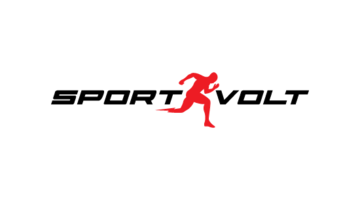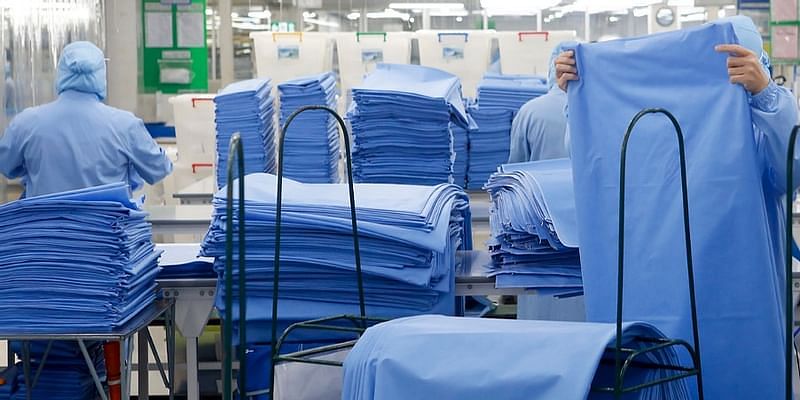
The COVID-19 pandemic has dealt a severe blow to most industries, and educational institutions are no exception. Schools and colleges abruptly shut down as the pandemic broke out. The shutting down of institutions had an adverse impact on firms and services associated with them.
SportVolt, a Delhi-based startup which provided sports curriculum, trained and affiliated coaches, and sports infrastructure to educational institutes is one such example.
The company which started with zero investment and a pilot project at Army Public School (APS) at Dhaula Kuan in Delhi in 2016 saw its revenue go up in the range of Rs 50 lakh to Rs 1 crore from the very first year. But as the nationwide lockdown was imposed in March 2020, SportVolt’s fortunes saw a steep decline.

Co-founder and CEO of SportVolt, Kshitij Tewari, 30, says the lockdown hit the company hard and it became apparent that the business would not bounce back anytime soon. “We were looking at profitability in FY2020, but little did we know that the pandemic will leave us with nothing,” says Kshitij.
Kshitij and his father Colonel Prakash Tewari, a former Army man and co-founder of SportVolt, did not get bogged down by the crisis.
Inspired by Prime Minister Narendra Modi’s slogan of ‘Aatmanirbhar Bharat’ (self-reliant India), the father-son duo pivoted to manufacturing Personal Protective Equipment (PPE) and set up a new company called Tewari Group.
PPE are protective gears meant to safeguard healthcare workers by minimising their exposure to biological agents. PPE include goggles, face-shields, masks (surgical/N-95), gloves (surgical/examination), coverall/gowns (with or without aprons), head cover, and shoe cover.
The Eureka moment
Kshitij says the pivot was coincidental. At SportVolt, the team was in touch with medical equipment vendors as it was dealing with sports-related physiotherapy. In April, he came across a person who enquired about buying PPE kits in bulk. The person was earlier sourcing the kits from China and the supply had stopped due to the pandemic.
This became a Eureka moment for Kshitij. “I noticed that very few vendors in India were making PPE kits, and that we as a country are not producing enough to meet the sudden rise in demand. I felt this was the best time for India to become a manufacturing hub for items that are used by millions of Indians on a daily basis,” says Kshitij.
Around the same time, the Ministry of Health and Family Welfare released a set of guidelines for the rational use of PPE for healthcare workers and for others who work at various points of entries, quarantine centres, hospitals, laboratories, primary healthcare, and community settings.
Kshitij says he reached out to PPE kit manufacturers, and came up with designs based on advice from doctors, sourced non-woven fabric, and started manufacturing them.
“This kind of approach not only helped us in tackling the pandemic as a business, but also helped the small and medium manufacturers who had otherwise shut their businesses,” says Kshitij.
In terms of target audience, he says two segments are buying PPE kits in bulk – government and Corporate Social Responsibility (CSR) division of corporate firms, and the company is targeting both to scale its business.
In CSR, the startup has already bagged deals from ICICI Foundation, Capgemini Foundation, and Petronet LNG.
An Invest India report, which has documented the PPE market figures, states that the global PPE kits market is now worth $52 billion and is expected to cross $92 billion in 2025. India alone is a Rs 7,000 crore (nearly $1 billion) market.
Investments, plans, and funding

Kshitij says that in the last five months, Tiwari Group has clocked a revenue of more than Rs 4.5 crore. He says that more than a lakh PPE kits have been manufactured and sold so far and the number is growing.
Besides this, the company has also bagged a deal with ATEK Defence and has become an authorised dealer for defence and defence armour like bullet-proof jackets. It plans to start manufacturing toilet papers as a separate division under Tewari Group.
Just like their previous venture SportVolt, the team plans to bootstrap this business as well, and has so far invested Rs 35 lakh into it. “Tewari Group is looking to make strides in the healthcare, defence, and infra sectors,” says Kshitij.
“Our aim is to build and sustain business models with local ownership and truly become a Made in India brand,” he says.
Source: Yourstory





